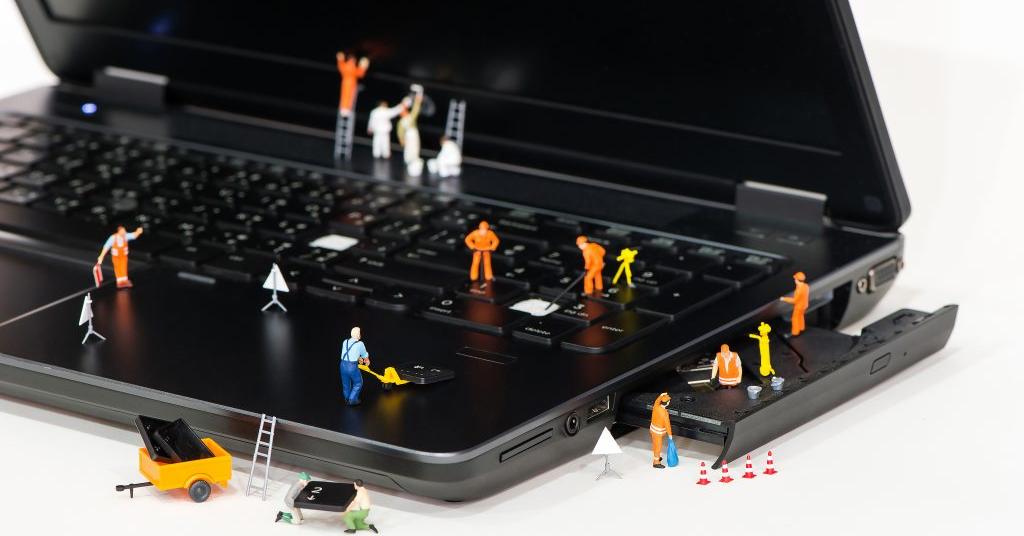Buying used laptops offers several perks that can make it an attractive option for many individuals. Some of the key advantages of purchasing a used laptop include:
Cost Savings: One of the most significant benefits of buying a used laptop is cost savings. Used laptops are generally much more affordable than brand-new ones, allowing you to get a quality device without spending a fortune.
Value for Money: With a lower price tag, used laptop often provides excellent value. You can get higher-end models or laptops with better specifications at a fraction of the cost of a new one.
Same Performance: In many cases, used laptops perform just as well as their newer counterparts, especially if they have been well-maintained by the previous owner. A used laptop can be more than sufficient for everyday tasks like web browsing, word processing, and multimedia consumption.
Reduced Environmental Impact: Opting for a used laptop reduces electronic waste and the environmental impact of manufacturing new devices.
Wider Selection: Buying used opens up a wider selection of laptops, including models that may no longer be available in the market. This allows you to find a laptop that suits your needs and preferences.
No Waiting Time: Unlike new laptops that may need to be pre-ordered or have limited availability, used laptops are readily available, eliminating any waiting time.
Customization: Some used laptops may have been upgraded or come with additional accessories, allowing you to find a customized solution that suits your requirements.
Overall, buying a used laptop can be a practical and budget-friendly way to get a fully functional device with many benefits similar to a new laptop.
Mistakes to Avoid
Buying a used laptop can be a cost-effective way to get a quality device without breaking the bank. However, there are several potential pitfalls to avoid to ensure you make a wise and satisfactory purchase. Let’s explore the common mistakes to avoid when choosing a used laptop:
Not Knowing Your Needs
One of the biggest mistakes is not knowing your specific requirements. Consider your intended use for the laptop, whether for basic tasks like browsing and word processing or more demanding activities like gaming or video editing. This will help you determine the necessary specifications and features needed in the laptop.
Not Researching the Model and Brand
Always research the specific laptop model and brand you are interested in. Look for reviews, user feedback, and professional evaluations to understand the laptop’s performance, reliability, and common issues.
Ignoring Physical Condition
Inspect the physical condition of the used laptop carefully. Check for any visible damages, scratches, or signs of wear. Be cautious of laptops with significant cosmetic damage, which may indicate rough handling or potential internal issues.
Not Checking for Functionality
Test the laptop thoroughly before purchasing. Ensure all the essential functions like the keyboard, trackpad, ports, speakers, and webcam are in working condition. Also, check the battery’s health and charging capability.
Overlooking Software and Licensing
Verify the software and licensing status of the used laptop. Ensure the operating system and other pre-installed software are legitimate and properly licensed. Beware of laptops with pirated or unauthorized software, as it may lead to legal issues or security risks.
Neglecting Hardware Specifications
Pay attention to the hardware specifications of the laptop. Check the processor, RAM, storage, and graphics capabilities. Ensure they meet your needs and are sufficient for the tasks you plan to perform.
Not Checking the Warranty or Return Policy
If possible, choose a used laptop with a warranty or return policy. This gives you some recourse if the laptop develops issues shortly after purchase.
Buying from Unreliable Sources
Avoid purchasing a used laptop from unreliable sources or unknown sellers. Stick to reputable retailers or trusted sellers with a track record of positive feedback and customer satisfaction.
Ignoring Upgradeability
Consider the upgradeability of the laptop. Some used laptops allow for easy RAM or storage upgrades, extending the device’s lifespan and performance.
Not Negotiating the Price
Don’t be afraid to negotiate the price with the seller, especially if you notice any issues or shortcomings with the laptop. Negotiating can help you get a better deal and address any concerns before purchasing.
Mistakes to Avoid When Dealing with Metal Scrap
Metal scrap is a valuable resource that can be recycled and repurposed for various applications. However, handling metal scrap requires attention to safety and environmental considerations. Here are the common mistakes to avoid when dealing with metal scrap:
Not Sorting the Scrap Properly
Failing to sort metal scrap correctly can lead to inefficiencies in the recycling process. Separate different types of metals, such as aluminum, copper, steel, and brass, to get the best value and facilitate recycling.
Ignoring Safety Measures
Handling metal scrap can be hazardous, as it may contain sharp edges, rust, or harmful substances. Always wear appropriate safety gear, such as gloves, goggles, and sturdy footwear, when dealing with metal scrap.
Not Cleaning or Preparing the Scrap
Clean metal scrap is more valuable and easier to process. Remove non-metal materials like plastics, wood, or rubber from the scrap to avoid contamination.
Hoarding or Storing Excess Scrap
Accumulating excessive metal scrap without a clear plan for recycling or selling can lead to clutter and potential safety hazards. Regularly sell or recycle the metal scrap to keep your workspace organized and safe.
Neglecting Environmental Regulations
Be aware of local environmental regulations and guidelines for handling and disposing of metal scrap. Improper disposal or contamination of scrap can lead to fines and legal consequences.
Not Researching Scrap Prices
Stay informed about current scrap metal prices to get the best value for your materials. Prices can fluctuate, so regularly check market rates before selling your scrap.
Avoiding Professional Assistance
Consider seeking professional assistance if you have a large quantity of metal scrap or complex materials. Metal recycling companies can help you efficiently handle and process the scrap.
Mismanaging Transportation
Ensure that you transport metal scrap safely and securely. Use appropriate containers or vehicles to avoid spills or accidents during transportation.
Not Establishing Relationships with Buyers
Build relationships with reputable scrap metal buyers or recycling centers. A reliable buyer can provide fair prices and consistent business for your metal scrap.
Not Educating Employees
If you have employees dealing with metal scrap, educate them about safety protocols and proper handling practices. Proper training can prevent accidents and injuries.
Conclusion
When choosing a used laptop, avoid mistakes like not knowing your needs, neglecting physical condition and functionality, overlooking specifications, and buying from unreliable sources. Avoid mistakes such as improper sorting, neglecting safety measures, hoarding excess metal scrap, and ignoring environmental regulations when dealing with metal scrap. By avoiding these mistakes, you can make informed decisions and ensure a safe and successful experience with used laptops and metal scrap management.










